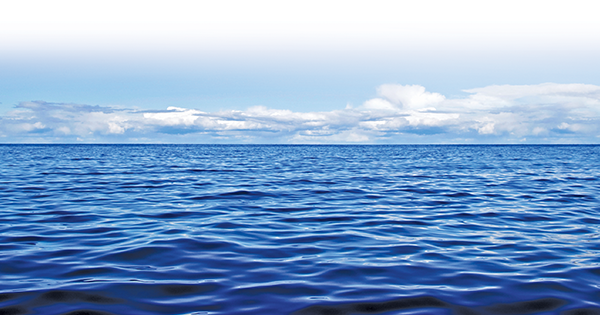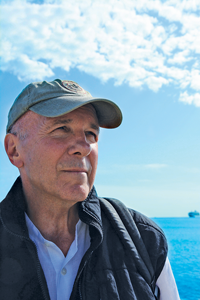

In Simon Winchester’s newest book, Pacific: Silicon Chips and Surfboards, Coral Reefs and Atom Bombs, Brutal Dictators, Fading Empires, and the Coming Collision of the World’s Superpowers, the best-selling author of The Professor and the Madman presents a biography of the world’s largest body of water. Here, he asks five questions about the future of this ocean, the realm where East meets West.
1. The Chinese navy managed to spook more than a few jittery Americans last September when it sailed five destroyers visibly close to the coast of Alaska during President Obama’s official visit to the state. Recent years have seen a spate of confrontations (or simply close calls, with little actual danger) between American and Chinese warships in the Philippine Sea. One Chinese aircraft carrier is currently in service, and four more are on order. Beijing asserts that by 2049, China will enjoy as large a naval presence in the ocean as the United States does now—and will exercise its ships and crews in international waters off San Diego and Pearl Harbor with impunity. And why not? Should the United States be concerned? Or does China have every right to be wherever it likes—even in an ocean long regarded as an American lake?
2. Australia, the only country in the world to occupy an entire continent, should be a leading force in today’s Pacific community. Yet it still isn’t a principal player, perhaps because its people have no wish to be, or because most of its Asian neighbors don’t entirely trust Canberra’s intentions. Some Australians view themselves as a nation apart and are unwilling to throw in their lot with China, Chile, Japan, Mexico, and all other nations that are so keenly pan-Pacific in their preferences and policies. Is there change on the horizon? Is there a chance that the new Trans-Pacific Partnership trade deal will give the Aussies the unifying jolt they may need?
3. The Pacific’s Ring of Fire, a vast horseshoe of spectacular topographic beauty and economic wealth, has lured millions of people. But beneath the goldfields, rice paddies, and teak jungles from Java to Japan, Alaska to Auckland, and Kamchatka to California, tectonic plates can shift on a whim. Scientists can now warn us before volcanoes erupt. Tsunamis—mostly—are predictable. Only earthquakes still present an intractable problem, though perhaps in a few more years geologists may be able to say when—give or take a few days or weeks—a temblor is about to strike. But then what? What should the mayor of Los Angeles do if scientists warn that a giant quake may be on the way, and very soon? Should cities have evacuation plans? And what if the geologists are wrong?
4. Over the centuries, European nations, together with the United States and, for a brief modern period, Japan, have seized, administered, and owned chunks of nearly every Pacific coast and island. (Thailand remains one of the few places to survive essentially unconquered.) Some in Taiwan recall Tokyo’s rule in kindly terms. Britain is missed in the Solomon Islands, but some Hawaiians wish the Americans had never arrived. Now that the postimperial dust has settled and the colonialists have, by and large, returned home, which occupiers will turn out to have shaped Pacific nations for the better, and which for ill?
5. In his most recent book, about his experiences in Papua New Guinea, Jared Diamond argues that we in the West can learn much from what he terms traditional societies. The World Until Yesterday was poorly received, not least by many Papuans, who disliked being characterized as warlike. But the notion that people we have long regarded as “primitive” have a good deal to teach us has become more popular recently. Two years ago, for instance, the Hawaiian crew of the Hōkūle’a, a traditional sailing canoe, managed to navigate from Honolulu to Papeete, Tahiti, without any navigational instruments whatsoever—no compass, no sextant, certainly no GPS. These sailors used only the stars, clouds, seabirds, and swells, and in the years since have navigated thousands of ocean miles. Right now they are about halfway through a four-year attempt to circumnavigate the world. If they succeed, might we in “advanced” nations take another look at how the quieter, more peaceable people of the planet conduct their lives, and reconsider our views about their relative lack of knowledge and wisdom? Just who really are the superior people?

